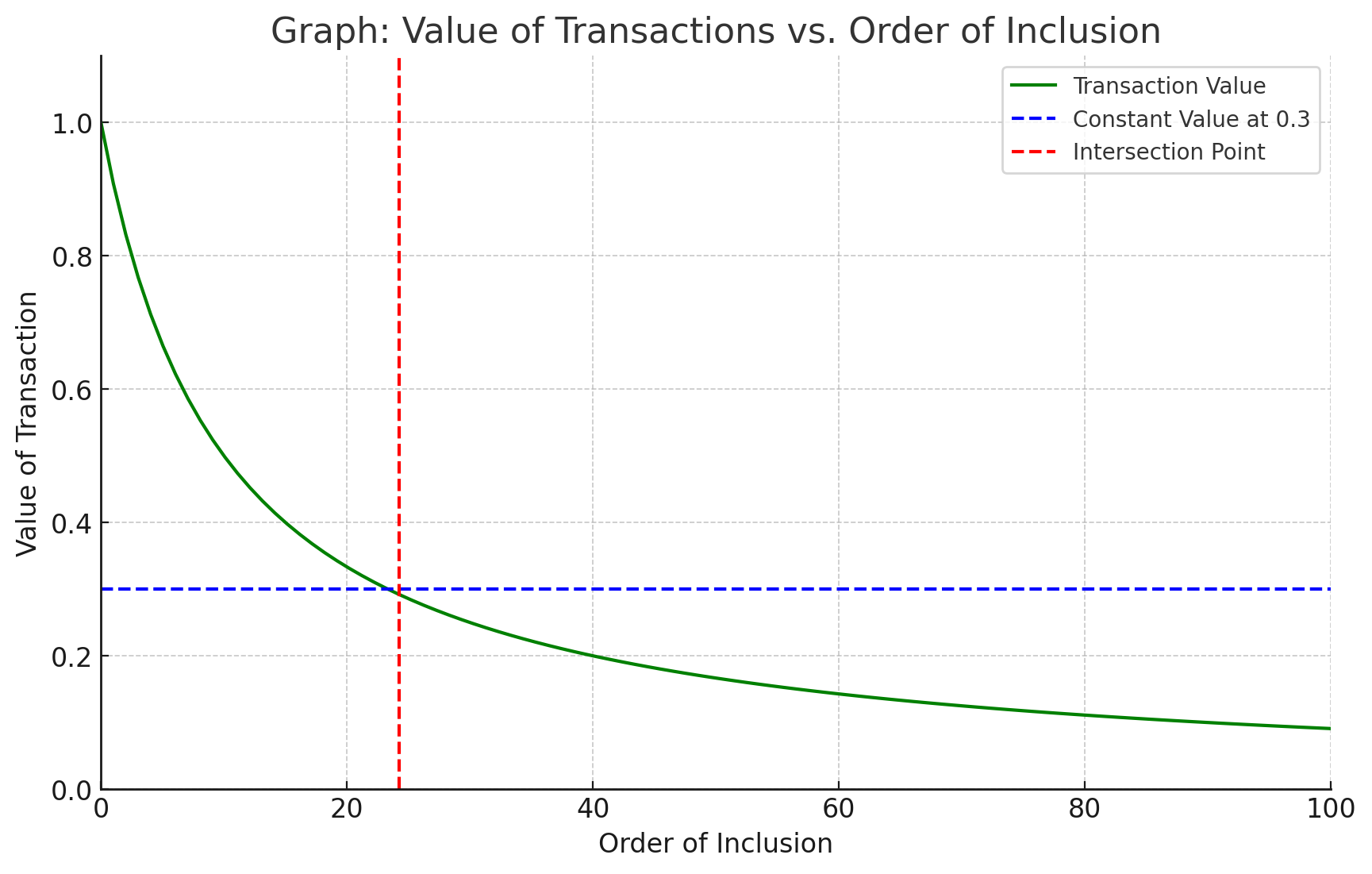Forward Contracts
Nature of the Forwards to be sold¶
The embedded volumetric optionality is primarily intended, at the time that the parties enter into the agreement, contract, or transaction, to address constraint factors that influence demand for transaction inclusion rights (i.e. blockspace). This instrument addresses the potential variability in the supply of available blockspace available for usage by different actors.
Note
"The built-in flexibility of this agreement aims to manage factors that affect the demand for transaction inclusion rights, commonly known as blockspace."
The options allocate slices of the total gas size in β-blockspace. We aim to homogenize it, i.e. all slices of gas are equal and interchangeable. This is how the forward contract is exercised.
The nature of the forwards we are selling under the β-blockspace market depends on the capacity restriction we impose. Most importantly, do we guarantee enough capacity that the calls get included or not? The problem with guaranteeing a fixed capacity for β-blockspace is that this means restricting the capacity for ⍺-blockspace. The problem with this is that ⍺-blockspace might be more lucrative for us. In particular, we know that lottery blocks come along that make up a large chunk of the overall remuneration we can achieve at all.
Figure 1: Tradeoff of ⍺/β-blockspace
Fixing ⍺-blockspace could result in significant value loss. Figure 1 below illustrates this tradeoff between ⍺-blockspace and β-blockspace.

We make the assumption that top of the block gas space is more valuable. The main assumption is that at some point, the marginal value for a builder owning the whole block (green) goes below the marginal value of a β-blockspace buyer (typically someone who wants to be just included independently of the order).
If we had perfect information, we could fix the capacity constraint at exactly the intersection point. But this information is not available. We can only approximate it. The question of lottery blocks can also be seen in the diagram, the question is whether for such a block both curves are shifted in the same way. If not, it would indicate the need to give ⍺-blockspace builders more space relative to β-blockspace builders1.
Bidder characteristics¶
Assumption of Intrablock Position
We operate under the assumption that position does not matter; if it does might affect the design significantly.
-
Bidders are possibly risk-averse: Standard revenue equivalence might go out of the window. Bidders are asymmetric; in particular if there is private orderflow.
-
Bidders valuations are not clear: If they draw from a public mempool or if there are global conditions affecting value of block space, their valuations will be interdependent. - There is also the danger of a further coordination issue; this might favor a winner-takes-all solution
Relation to the secondary market¶
Traditionally we would assume that a well-designed auction does not require a secondary market. If the result of the auction is in the core, no change in the allocation makes sense. In this case, information evolves over time, which significantly impacts the auction dynamics. Base fees and transaction updates for ⍺-blockspace bidders are crucial factors to consider. We operate under the assumption that position does not matter; if it does might affect the design significantly.
New bidders are active on the secondary market. The secondary market therefore is not just a reallocation of the primary auction but includes information updates.
Secondary Market Effects
This is in contrast to most work on auctions with resale (re: secondary) markets. The secondary market changes the rationale for bidding in the primary auction
-
There is another aspect to consider. The larger the ⍺-blockspace part, the larger the possibility of including a txs in β-blockspace that will revert (due to state changes). This wil degrade the value of the option to buy β-blockspace space. What is more, this might jeopardize the service as a whole. If builders get the impression that the service is not of sufficient quality, then they will stop using it. So there is also a reputation component - in particular at the beginning. ↩